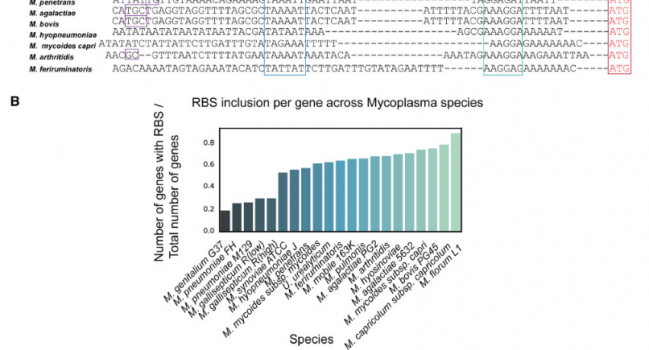Abstract:
Mycoplasmas are important model organisms for Systems and Synthetic Biology, and are pathogenic to a wide variety of species. Despite their relevance, many of the tools established for genome editing in other microorganisms are not available for Mycoplasmas. The Tn4001 transposon is the reference tool to work with these bacteria, but the transformation efficiencies (TEs) reported for the different species vary substantially. Here, we explore the mechanisms underlying these differences in four Mycoplasma species, Mycoplasma agalactiae, Mycoplasma feriruminatoris, Mycoplasma gallisepticum and Mycoplasma pneumoniae, selected for being representative members of each cluster of the Mycoplasma genus. We found that regulatory regions (RRs) driving the expression of the transposase and the antibiotic resistance marker have a major impact on the TEs. We then designed a synthetic RR termed SynMyco RR to control the expression of the key transposon vector elements. Using this synthetic RR, we were able to increase the TE for M. gallisepticum, M. feriruminatoris and M. agalactiae by 30-, 980- and 1036-fold, respectively. Finally, to illustrate the potential of this new transposon, we performed the first essentiality study in M. agalactiae, basing our study on more than 199,000 genome insertions.
Read the full text.

